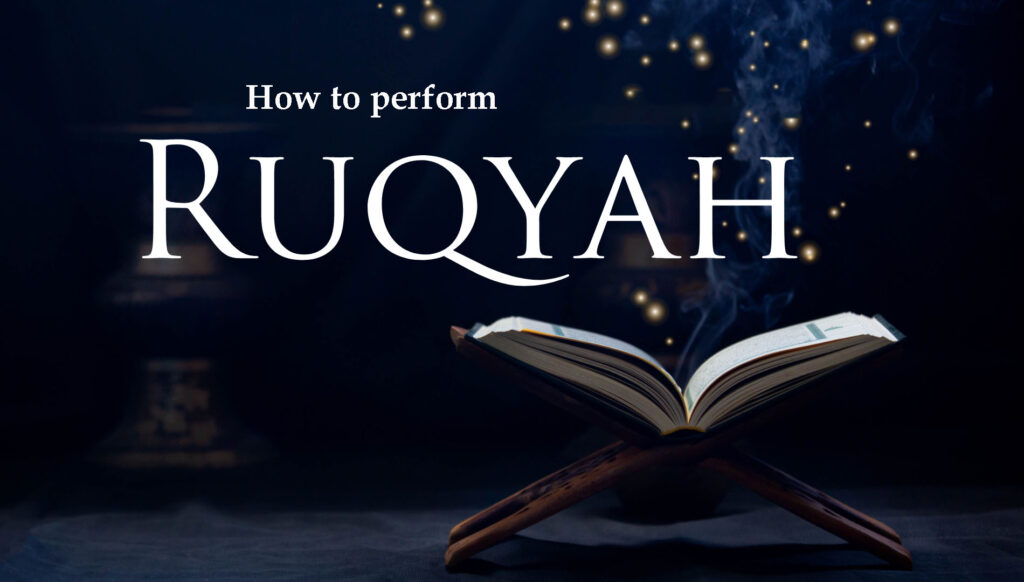
Legal Ruqyah (الرقية الشرعية) is a deeply rooted Islamic practice aimed at protecting individuals from harm, offering healing, and connecting with Allah’s divine mercy. It is essential to follow the Quran and Sunnah for a Ruqyah that aligns with Islamic teachings. This article provides an in-depth look into Ruqyah’s significance, practical steps, and Al-Dirassa Institute’s online Quranic and Islamic courses for those seeking deeper knowledge.
Sign in now to access Al-Dirassa Institute’s diverse courses on Quranic Tafsir, Arabic language, and Sunnah-based teachings.
Legal Ruqyah refers to reciting specific Quranic verses, duas, and supplications taught by the Prophet Muhammad (PBUH) to seek protection and healing. Unlike prohibited forms of Ruqyah, legal Ruqyah relies solely on Allah’s words and avoids any form of shirk (associating partners with Allah).
The practice is used to safeguard oneself from the evil eye (al-‘ayn), black magic (sihr), and possession by jinn. It is a form of spiritual remedy that emphasizes tawakkul (reliance) on Allah and adherence to Islamic principles.
Don’t want to go through the translation anymore?
30 free minutes with your qualified Egyptian teacher.
The following Quranic verses and authentic duas are commonly used in legal Ruqyah:
Surah Al-Fatihah (1:1-7): The opening chapter of the Quran, often referred to as “The Cure.”
Ayat Al-Kursi (2:255): A verse known for its protection against harm.
The last two verses of Surah Al-Baqarah (2:285-286): For comprehensive protection.
Surah Al-Ikhlas (112), Al-Falaq (113), and An-Nas (114): Recited thrice in the morning and evening for protection.
Specific duas: Such as “A’udhu bi kalimatillahi at-tammati min sharri ma khalaq” (I seek refuge in Allah’s perfect words from the evil of what He has created).
Al-Dirassa Institute offers comprehensive online courses to help learners understand and apply these powerful verses correctly, ensuring they follow the authentic methods prescribed by the Prophet (PBUH).
Legal Ruqyah provides comprehensive healing for the body and soul. Its benefits include:
Performing Ruqyah involves sincerity, purity, and adherence to Islamic guidelines:
For advanced understanding, Al-Dirassa Institute provides courses on Quranic healing and the prophetic Sunnah, offering detailed insights into the Ruqyah process.
The Prophet Muhammad (PBUH) provided practical examples of performing Ruqyah. He encouraged reciting Surah Al-Falaq and Surah An-Nas for self-protection and healing others.
An example from the Sunnah includes:
The Prophet’s Ruqyah for Illness: He would recite “Bismillah arqeek, min kulli shay’in yu’dheek, wa min sharri kulli nafsin aw ‘aynin hasid. Allahu yashfeek” (In the name of Allah, I perform Ruqyah for you from everything harming you, from the evil of every soul and jealous eye. May Allah cure you).
To ensure the Ruqyah remains lawful and effective, avoid the following:
Use of Amulets or Talismans: These often involve shirk and are strictly forbidden.
Unverified Healers: Avoid practitioners who claim to use spirits or un-Islamic methods.
Relying on Non-Quranic Sources: Trust only the Quran and authentic duas from the Sunnah.
Overemphasis on Rituals: Ruqyah is not about rigid ceremonies but sincere supplication to Allah.
Can I perform Ruqyah on myself?
Yes, self-Ruqyah is highly encouraged. The Prophet (PBUH) often performed Ruqyah on himself and his family using Surah Al-Falaq and Surah An-Nas.
How often should Ruqyah be performed?
There is no fixed frequency, but consistency in morning and evening supplications enhances protection.
Can Ruqyah be learned online?
Yes! Al-Dirassa Institute offers comprehensive courses that teach Quranic recitation and understanding, ideal for those seeking to learn Ruqyah in-depth.
Is Ruqyah effective for physical illnesses?
Ruqyah is effective, especially for ailments with spiritual causes, but it should be accompanied by medical treatment for physical conditions.
Legal Ruqyah is a profound Sunnah-compliant practice that provides protection and healing. By adhering to Islamic principles, avoiding prohibited methods, and reciting Quranic verses and duas, believers can ensure effective Ruqyah. For those looking to enhance their knowledge of Ruqyah, Quran, and Sunnah, Al-Dirassa Institute’s online courses are a valuable resource.
Sign in now to explore Al-Dirassa Institute’s free online courses on Quranic Tafsir, Islamic teachings, and Arabic language learning. Deepen your understanding of the Quran and Sunnah with expert tutors.
To know more: Prophetic Medicine in Islam
Discover the experiences of our delighted clients who have thoroughly enjoyed utilizing this standout feature.
Alhamdulillah I‘m very pleased with the arabic and Qur’an lessons I receive from teacher Umm Tasneem and I‘m also content with the al-dirassa administration team who were very quick in answering any questions I had. In a month I progressed a lot and I cannot wait to continue my studies with al-dirassa. May Allah reward everyone at al-dirassa.
Verified review - view original
My Qur’an teacher is fantastic, she teaches me in a loving and kind way where I look forward to the lessons and learn so much. My Arabic teacher is equally as nice and has a lot of patience with me, she has great expertise in the field and I’ve progressed really quickly with her. Thank you Al-dirassa!
Verified review - view original

Al-dirassa Institute offers you a gift to help you begin your journey to being fluent in Arabic and learning the Quran.

Al-dirassa Institute offers you a gift to help you begin your journey to being fluent in Arabic and learning the Quran.